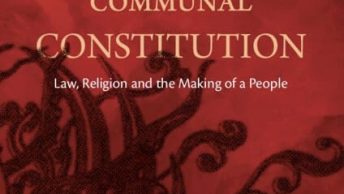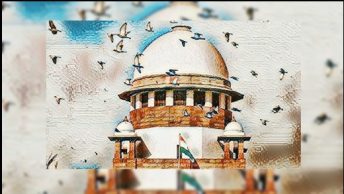Guest Post by Anuj Bhuwania, South Asian University, about his new book.
My book ‘Courting the People: Public Interest Litigation in Post-Emergency India’ is going to be released this weekend as
part of the 4th Law and Social Sciences Network (LASSnet)
Conference from 10-12th December in New Delhi. Published
by Cambridge University Press, the book is part of a new series entitled ‘South Asia in the Social Sciences,’ edited by
Partha Chatterjee. More details of the book are available
here.
As the readers of this blog are well aware, the Indian higher judiciary has acquired an increasingly important role in India’s public discourse in the last few decades. The Supreme Court and the state High Courts have emerged as enormously powerful judicial institutions in the aftermath of the Internal Emergency of 1975-77. The principal means through which these judicial powers have been mobilized and enacted is the jurisdiction of Public Interest Litigation (PIL). This book studies the political role that PIL has come to play in contemporary India. It revisits the circumstances and manoeuvres that led to the rise of PIL and traces its political journey since then, arguing that the enormous powers that PIL confers upon the appellate judiciary stems from its populist character.Based on empirical research, it shows how PIL grants the appellate courts enormous flexibility in procedure allowing them to manoeuvre themselves into positions of overweening authority. It focuses on the most intensive laboratory of PIL in recent times, the city of Delhi, and foregrounds the role that PIL has played in the radical reconfiguration of the city in the 21st century. While PIL cases are usually politically analysed solely in terms of their effects, whether beneficial or disastrous, this book locates the political challenges that PIL poses in its very process: arguing that its fundamentally protean nature stems
from its mimicry of ideas of popular justice.
Courting the People examines PIL as part of a larger trend towards legal informalism in post-Emergency India. Casting a critical eye at these institutional reforms that aimed to adapt the colonial legal inheritance to ‘Indian realities’, this book looks at the challenges posed by self-consciously culturalist juridical innovations like PIL to ideas of fairness in adjudication
as well as democratic politics.
As part of a LASSnet Conference Book Panel, a discussion on this book will be held on Sunday 11th December between 4:15 and 6 pm at Jacaranda 1 Hall, India Habitat Centre.
Professor Ujjwal Kumar Singh and LAOT’s own Tarunabh Khaitan will be commenting on the book.
Professor Sitharamam Kakarala will be the chair. All are welcome.
The book will be available for sale exclusively at the LASSNET conference this weekend. It will be available in bookstores and online stores in India soon after. It is also already available for
pre-order internationally on Amazon, though the Indian version is much cheaper.
I had recently written an
opinion piece in The Hindu, touching on some of the themes and arguments of the book in the context of the Indian Supreme Court’s
controversial order on the compulsory playing of the national anthem in cinema halls.




